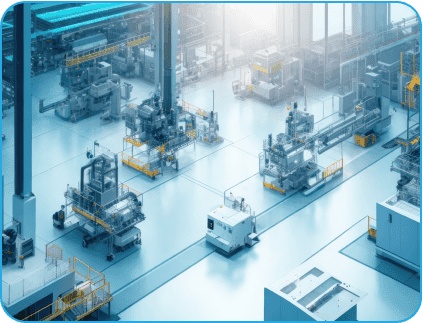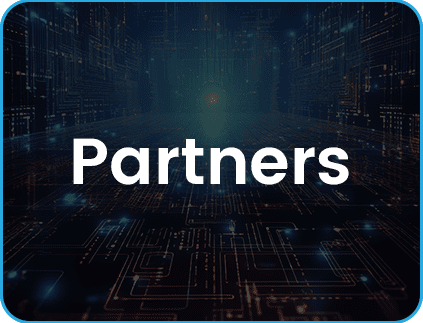- November 4, 2022
- Posted by: Shabbin
- Category: Data & Analytics

Introduction
Artificial Intelligence (AI) is transforming nearly every part of human existence, including jobs, the economy, privacy, security, ethics, communication, war, and healthcare. For any technology to prosper in a competitive market, its advantages must exceed its downsides.
As AI research evolves, it is believed that more robots and autonomous systems will replace human jobs. In the 2022 Gartner CIO and Technologies Executive Survey, 48% of CIOs reported that their organizations had already used AI and machine learning technology or planned to do so over the next 12 months. What does this portend for the labour force? As AI helps people become more productive, will it eventually displace them?
This blog examines the advantages of AI services and how their monetization will usher in a new era for humanity.
Click here to know we can help with our AI capabilities
Get in touch
Why AI?
Artificial intelligence permeates our lives today, making us increasingly dependent on its benefits. Here are some practical ways AI can assist us in doing our jobs more effectively:
Reduce errors
In industries such as healthcare and finance, we can be confident of AI’s outcomes. Imagine the risk of making mistakes when dealing with health concerns or the consequence of a sick patient receiving the incorrect treatment.
AI minimizes the risk of making such errors. The activities performed with AI technologies are accurate. We can successfully use AI in search operations, reduce the likelihood of human negligence, and assist physicians in executing intricate medical procedures.
Simplify difficult tasks
Several undertakings may be impossible for humans to do. But .due to artificial intelligence, we can execute these tasks with minimal effort using robots. Welding is a potentially hazardous activity that AI can carry out. AI can also respond to threats with relative ease, as harmful chemicals and heat have little to no effect on machines.
AI-powered robots can also engage in risky activities such as fuel exploration and marine life discoveries, eliminating human limitations. In conclusion, AI can save innumerable lives.
Provide safety and security
With the help of AI’s computational algorithms, our daily actions have grown safe and secure. To organize and handle data, financial and banking organizations are adopting AI.
Through an intelligent card-based system, AI can also detect fraudulent activity. Even in corporations and offices, biometric systems help track records. Thus, there is a comprehensive record of all modifications, and information is kept safe.
Increase work efficiency
Long working hours are programmed into machines, which increases their production and efficiency. In addition, there is limited potential for error (unlike humans); thus, the outcomes are far more accurate.
Nonetheless, it should be noted that several trials resulted in undesirable reactions from AI-powered apps. When faced with difficult circumstances, robots might become hostile and attack other robots and people. Scientists such as the late Stephen Hawking have long cautioned about the dangers of artificial intelligence and how it affects other living forms. According to numerous AI experts, despite being created by humans, AI can outwit us and usurp our position of authority.
Must Read: Data Is No Longer The New Oil – It Is The World`s Most Valuable Resource
The Dangers Posed by AI
It’s a fact. Without human control, AI can unleash events reminiscent of the most recent sci-fi film! Artificial intelligence can become our overlords and annihilate us with an intellect far beyond our capabilities. AI-powered robots are designed using the computational capabilities of our brains, rendering them purely intelligent beings devoid of human sensitivity, emotion, and vulnerability.
Automation
The concern that robots will replace people on assembly lines and in other basic manufacturing activities has been expressed by thinkers for decades. However, the situation is aggravated by the news that white-collar employment is now at risk.
Ideally, everybody can gain from the greater output with less effort. However, declining employment could compel modern nations to evaluate their present political and economic structures.
Deepfakes
he state of modern social media platforms has increased polarization and the spread of misleading information. In this scenario, the threat of deep fakes has the potential to dilute public knowledge and increase public mistrust.
Artificial intelligence systems have become increasingly capable of generating or editing movies of actual people, with this technology becoming more accessible to the average person.
Data-based AI bias
GIGO, or garbage in, garbage out, is nearly as ancient as computers. It is also a problem we have not been able to solve since it is an existential rather than a technological one.
Manually entering erroneous data into a computer will yield inaccurate results, introducing racial, ethnic, and gender bias into the computing process. When carried out on a worldwide scale, prejudice can reach worrisome dimensions.
Conclusion
The ultimate decision will rely on human beings when we ask ourselves whether AI is a blessing or a burden. We are solely responsible for determining how much control we exercise and whether we use technology for good or ill.
Utilized judiciously, AI can enhance results. Freeing humans from monotonous tasks allows them to be more creative and strategic. When used wisely, AI’s most important contribution will not be to replace but to create. Consequently, AI augmentation—the complementary combination of human and artificial intelligence—might be the most significant “benefit” that AI provides.
Inquire Now to know the capabilities and AI Solutions we offer!




